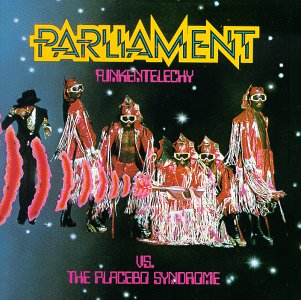View current page
...more recent posts
Debate 1 Recap: Kerry beat Bush on facts. But Bush, being a religious fanatic, stays on message, even though he f-ed up in Iraq. Kerry has no good answer to Bush's oft repeated criticism: How can you say "wrong place, wrong time, wrong war" (that is, make a devastating and accurate critique of prewar machinations) and expect to win the war? How does that inspire the troops? Kerry says he'll "win" by (1) going to the UN, (2) getting more allies involved, (3) strengthening Iraq's borders, (4) giving our troops body armor, (5) "chang[ing] the dynamics of the ground" (i.e., flattening Fallujah), while all the while criticizing the Administration's plan to build 14 military bases in Iraq. That is indeed a contradictory mix of signals. And would France or Germany really commit troops at this point? No. Will Arab nations? Get real. Bush plans to pour it on and kill more people without help; Kerry plans to bring in allies to help us do it, which will never happen. Kerry wants us to stay in Iraq for the usual bleeding heart "humanitarian" reasons (killing rebels for peace); Bush wants to do it to show Americans are tough (and for the oil). Yet I think Democrat and Republican voters alike are secretly banking that both are lying and will do a quick pull-out after the election. Both positions are phony, but Bush is at least internally consistently phony.
UPDATE: From the lead paragraph in the NY Times coverage today: "And it was body language as much as rhetoric and one-liners that distinguished the two candidates in last night's debate. " There they go again, focusing on the cosmetic stuff, avoiding discussion of the issues. "We'll get allies involved." Rii--i-ight.
entelechy
Function: noun
Inflected Form(s): plural -chies
Etymology: Late Latin entelechia, from Greek entelecheia
1 : the actualization of form-giving cause as contrasted with potential existence
2 : a hypothetical agency not demonstrable by scientific methods that in some vitalist doctrines is considered an inherent regulating and directing force in the development and functioning of an organism
funkentelechy

Debate questions from today's New York Times op-ed page, annotated.
WHAT TO ASK JOHN KERRY (note the Times puts the conservative questions first)Better questions, please?
WILLIAM KRISTOL: If you now consider the war in Iraq to have been a mistake, how could you, as president, "ask a man to be the last man to die for a mistake"? (Translation: Kristol wants men to die.)
RUTH WEDGWOOD: How could we have guarded against Saddam Hussein's reckless nuclear intentions? (Assumes Saddam was a threat, recently disproven.)
VICTOR DAVIS HANSON: What precise plans do you have to induce positive changes in attitude in Iran, Lebanon and Syria? (Assumes we're the "world's cop.")
WHAT TO ASK GEORGE BUSH
MADELEINE K. ALBRIGHT: Since our direction in Iraq is obviously wrong, don't we at least need to change drivers? (Editorial masquerading as a question.)
RICHARD A. CLARKE: Under what circumstances would you authorize military action, including an invasion, to achieve regime change in Iran? (Assumes we're the world's cop.)
ARTHUR M. SCHLESINGER Jr.: What is the relation between your Christianity and that preached by the pope and by mainstream Protestants who oppose preventive war? (Philosophical question no one in the public expects a politician to answer.)
I came across Wooster Collective: A Celebration of Street Art during my reBlogging stint, and continue to be amazed by the work on the site. A visual feast, inherently post-studio, and an insult to God-given property rights. Here's Isaac "A-Number One" Hayes on a fence in Germany:

And a couple of architecture-on-architecture renderings from Paris that are merveilleux:


More on the train wreck that is Moog, the film. Wendy Carlos must be interview-shy. Switched-on Bach is mentioned in the movie but not her, by name. She deserves more credit (A Clockwork Orange? "Country Lane"? Tron soundtrack? C'mon!). Too much footage makes Moog's instrument look ridiculous. There's an admittedly over the top and laugh out loud funny Schaefer Beer commercial with some knucklehead doing a real ice-arena show stopper on a giant, early, multi-module Moog, climaxing with him quaffing a brew and the tag line "Schaefer: the beer to have when you're having more than one." Keith Emerson still has his two-ton Moog, and you get to see him playing it during a recent "Moog tribute night" at the BB King Theater. But it just sounds like the "Aquatarkus Variations"--nothing particularly new there. Vintage footage of Gershon Kingsley's First Moog Quartet looks as silly as that group was. Rick Wakeman makes the point, during his long-winded, bloke-down-the-pub spiel, that before the Moog, rock keyboardists weren't sexy, but were seen as behind the scenes accompanists for guitar players. But because the Moog was so loud and flashy, suddenly they could hold their own on the stage. Some of the background transition sequence music is nice. It's interesting to watch Moogs being assembled and to hear the inventor talk about them--he's quite the spiritualist, and says he intuitively knows what sounds the circuits will make. He emphasizes the importance of playing live before an audience, and seems to distrust "music made alone to be listened to by people alone," which may be why Spooky's analytical discourse on the sampler leaves him cold. A couple of other notable points: the electronic composer Vladimir Ussachevsky gave much input on the design of the mini-Moog, we learn: specifically, putting the sound generating dials (oscillators) in one rectangular group and the sound-shaping dials (envelope, filter) in another. Herb Deutsch recalls that Ussachevsky recommended not adding a keyboard, because he felt that would encourage playing the instrument in a traditional way, as opposed to discovering new sounds it was capable of, an observation that turned out to be prescient, since most people just used the Moog as a spacy organ.

John Zoller, A Happy Farm Boy in Ohio, 2001, 60 x 72 inches, acrylic and oil enamel on canvas. From the series United States: Color and Learn.
The film Moog is, I'm sorry to report, not so good. Theremin or even Modulations it's definitely not. Synthesizer inventor Robert Moog is himself a charming and highly intelligent interview subject, but the film unfortunately consists of him being flown around the globe for on-location tete-a-tetes with Musical Bores of the World. DJ Spooky holds forth with his usual spiel about sampling until it dawns on him that Moog is only feigning attention; he abruptly switches tracks and compliments him for all the analog hiphop beats his work indirectly influenced. Rick Wakeman and Bernie Worrell go on, like bad drunks at a party, about how a synthesizer is like a woman who must be coaxed, made to scream, yadda yadda. The live music depicted in the film is uniformly pretentious and blah: Stereolab, Keith Emerson, Luke Vibert and Jean-Jacques Perrey all manage not to shine. The highest spots involve not the keyboard instrument but the Theremin, which Moog got his start building. Solos by Pamelia Kurstin and Moog himself are beautiful and otherworldly--music from thin air, only two controls (pitch and volume), no moving parts, it's the soul of economy and still inherently futuristic. How did we ever lose track of the concept?
|  |
 |
|
